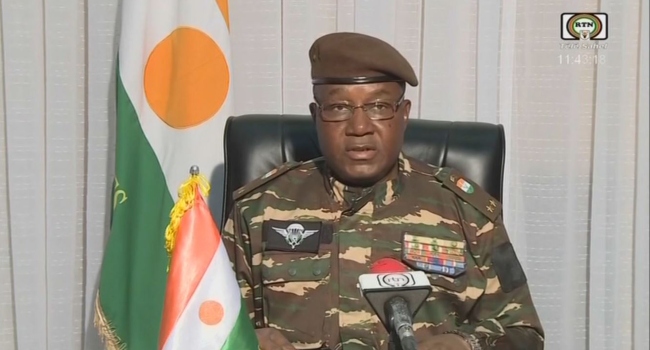The leader of the Niger junta, Abdourahmane Tchiani, has expressed his willingness to engage in diplomatic dialogue to resolve the ongoing political crisis in the country, following a meeting with a delegation of Islamic scholars from Nigeria.
During an hours-long discussion held in Niger’s capital, Niamey, Tchiani engaged with the delegation led by Bala Lau, the national chairman of Jam’atul Izalatu Bida Waikamatu Sunnah. The Islamic scholars visited Niger on behalf of Nigerian President Bola Tinubu, who accepted their request to mediate in the crisis.
In a statement issued by Lau on Sunday, it was revealed that the discussions revolved around a range of issues, including the demand by the Economic Community of West African States (ECOWAS) for the reinstatement of democratically elected President Bazoum.
Tchiani expressed his regret that the junta’s perspective had not been heard by ECOWAS before issuing ultimatums and emphasised the coup’s intent to thwart a looming threat to both Niger Republic and Nigeria.
Tchiani asserted, “Our doors are open to explore diplomacy and peace in resolving the matter.”
He acknowledged the coup’s purpose and apologised for not according proper attention to the delegation previously sent by President Tinubu. He cited ECOWAS’ ultimatum as a contributing factor to the tensions.
When questioned about the junta’s stance on dialogue, Niger’s prime minister, Ali Mahamane Lamine Zeine, appointed by the junta, stated, “Yes, for sure.
That was exactly what the leader of our country told them, he did not say he was not open to dialogue.” He conveyed optimism about forthcoming discussions with ECOWAS in the coming days, with hopes of lifting the imposed sanctions.
The prime minister further characterised the ECOWAS sanctions as “an injustice,” contending that they contradicted the bloc’s rules.
He expressed confidence that the dialogue with ECOWAS would result in a resolution to lift the sanctions and emphasised that the junta was committed to finding peaceful solutions to the crisis.
As diplomatic efforts continue, the international community watches closely to see if the junta and ECOWAS can reach an understanding that will lead to stability in the region.




